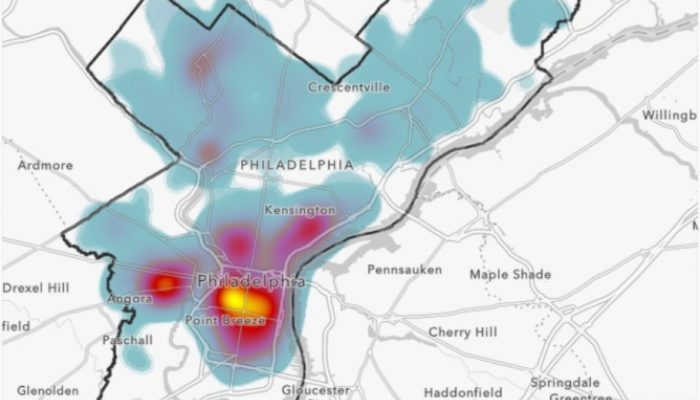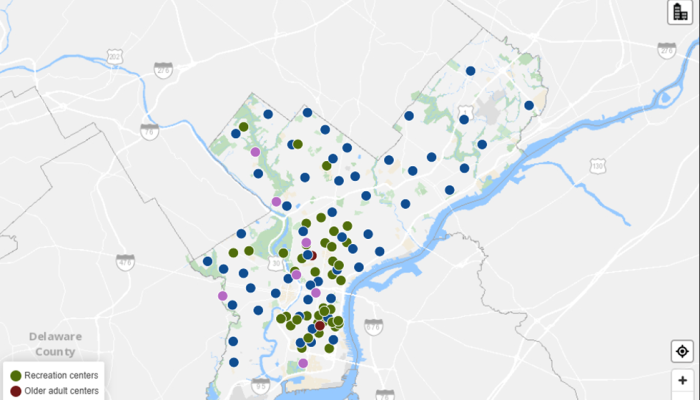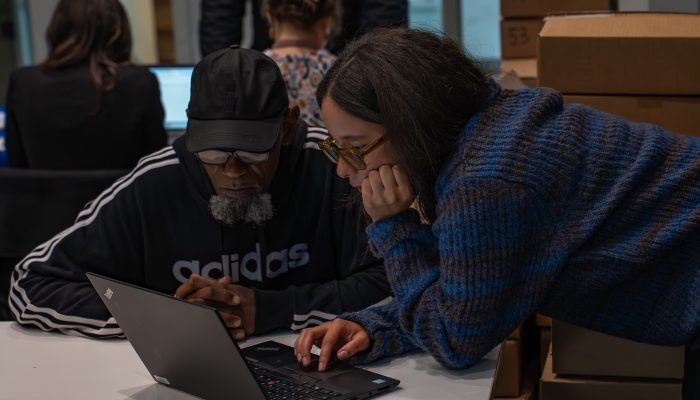Blog by Joanna Hecht, Pitch and Pilot Fellow, Office of Innovation and Technology
This blog post is part of a series that covers the first two years of the SmartCityPHL program.
Since May 2020, Philadelphians have been able to text, call, or visit the website of Retrievr to schedule contactless doorstep pickup of unwanted clothing and electronics. SmartCityPHL led the availability of this service through a program called Pitch & Pilot that aims to work with the private sector to support municipal goals. Retrievr proposed their service in response to a call for technology that could contribute to Philadelphia’s goal of zero waste by 2035.
The City’s partnership with Retrievr has since expanded to help reduce the digital divide by collecting computers and mobile devices to donate to Philadelphians in need.
Why is the recycling of clothing and electronics important? How does SmartCityPHL measure the success of this type of project? And how was this partnership expanded to provide new opportunities to close the digital equity gap in Philadelphia?
It’s all about that waste
Philadelphia’s “Zero-Waste” goal aims to fully eliminate the use of landfills and conventional incinerators by 2035. In early 2020, the SmartCityPHL program teamed up with the Office of Sustainability and the Streets Department to launch our first Pitch & Pilot Call for Solutions. We asked for innovative technology to play a role in reducing waste and increasing waste diversion rates.
This call elicited over two dozen proposals from around the world, proposing a wide range of technology-enabled projects that could have an impact on the issue of waste. Retrievr’s proposal pointed out that their on-demand, doorstep collection of clothing and electronics targeted about ten percent of Philadelphia’s residential waste. These materials are not recyclable through Philadelphia’s curbside recycling program.
Additionally, the textiles and electronics collected by Retrievr are resold, either for reuse or recycling. Philadelphia can make significant strides towards its zero waste and sustainability objectives by reusing more unwanted materials instead of putting them into recycling or the trash. A “circular economy” focuses on promoting the reuse of products at their highest possible value. By lowering the demand for items created from scratch, reuse not only keeps unwanted items out of landfills, but helps reduce the energy and resources required to produce or transport new goods.
Successes and challenges
During the three-month pilot period, Retrievr collected approximately 27,000 pounds of clothing and electronics from 468 Philadelphia households. Since the pilot period ended in July 2020, they have continued offering their service to residents. The waste they’ve diverted from Philadelphia’s waste stream now exceeds 80,000 pounds. Retrievr has also been able to expand the items they collect to include small appliances like dehumidifiers and air conditioners.
There were some challenges, as well. Changes in recycling markets meant that Retrievr had to charge a convenience fee to continue offering pickups after the pilot period.
From recycling to digital equity
Despite recycling market challenges, Retrievr continues to be a great partner that expanded their services for the City to support another City goal: reducing the digital divide. With the impact of COVID-19 and the increased importance of technology in communicating, learning, working, and accessing services, the City formed a program called PHLDonateTech. Retrievr offered to collect unwanted computers, laptops, mobile phones, and tablets—and waive its convenience fee—to be delivered to local refurbishers. Refurbished machines are then donated to Philadelphians in need. In just under two months since the program launched, Retrievr has collected over 300 computers.




